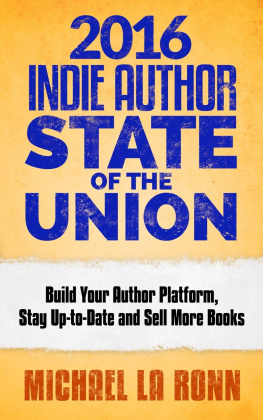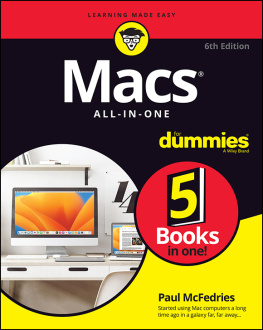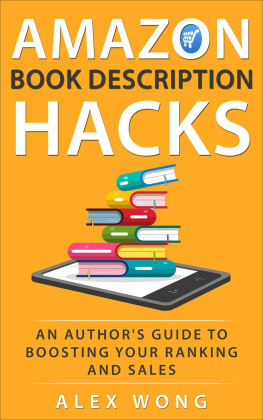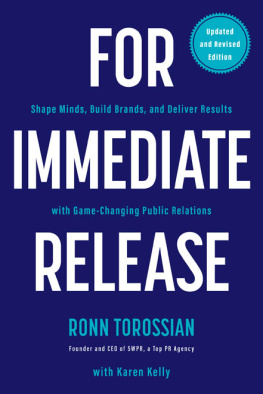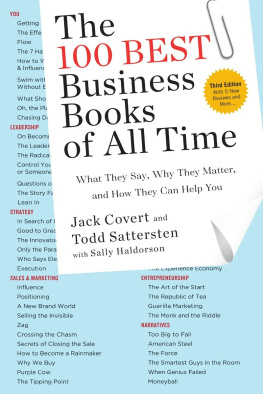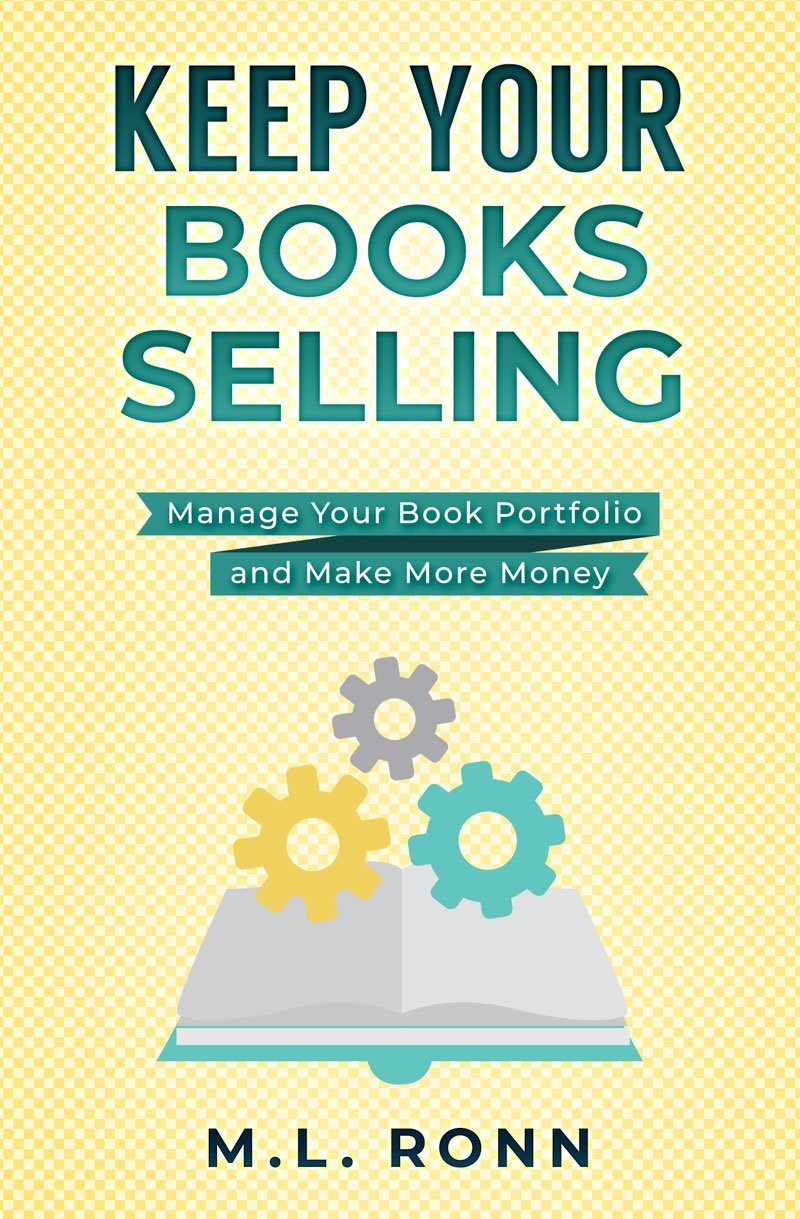Copyright 2021 M.L. Ronn. All rights reserved.
Published by Author Level Up LLC.
Cover Design by Pixelstudio.
Covert Art jemastock / Depositphotos.
Editing by BZ Hercules.
Special thank you to the following people on Patreon who supported this book: Zhade Barnet, Stephen Frans, Michael Guishard, Jon Howard, Beth Jackson, Megan Mong, Lynda Washington, and Etta Welk.
Some links in this book contain affiliate links. If you purchase books and services through these links, I receive a small commission at no cost to you. You are under no obligation to use these links, but thank you if you do!
For more helpful writing tips and advice, subscribe to the Author Level Up YouTube channel: www.youtube.com/authorlevelup.
WHAT YOULL LEARN IN THIS BOOK
If you're anything like me, when you publish your first book, you're already thinking about the next one. In a short matter of time, aside from some marketing, your first book exits your mind altogether. This cycle repeats with every new book you publish.
If you keep at it, you'll wake up one day and have dozens and dozens of books to your nameand if you're lucky, you'll be making great money too. But boy, oh boy, managing your books will be a nightmare. When I say nightmare, I mean the kind where you get chased by a giant spider and you wake up in the middle of the night in a cold sweat panting, only to discover that you're still dreaming, and the spider is waiting at the foot of your bed.
If you don't do it correctly, managing your books will be a nightmare within a nightmare.
Let me give you an example of how managing your books can turn into a nightmare if you don't do it correctly. From 2014 until 2020, Google Play sold books under the wholesale pricing model, which meant that they would discount your book to sell it. If you listed your book at $4.99, Google would discount it to $3.85 for readers. That meant that if you wanted to truly sell the book at $4.99, you had to list it at around $6.50 so that Google would discount it to the price point you wanted. You also had to do this to avoid the Amazon algorithms price-matching your book based on the Google priceoften, if Amazon found out Google was selling your book at $3.85, it would drop the price to $3.85 too.
Fast-forward to 2021, where Google has switched from wholesale pricing to agency pricing. Now, it will sell your books at the price point you list them at. No more discounting. But there's just one problem: all the books you've published in the last seven years are now priced 20 percent higher than they should be! Your books stop selling overnight.
And there's an even bigger problem: Google's announcement email went to your spam filter, so you missed the news. You don't discover the pricing news until it's too latenot only have your sales at Google dried up, now you have to go back and re-price all your books. Will your sales come back to their regular levels? Who knows?
That's what I call a "big event." Fortunately, events like this don't happen that often.
However, consider the "little" events that are far more common:
- You run a promotion but forget to change the price of your book to the original price after the promotion ends, but you don't discover it for weeks, months, or years.
- You list one of your books at the wrong price.
- You list one of your bestselling books at the wrong price in another country's currency, hurting your sales.
- You publish the wrong version of a book, one that included a bunch of typos that you already fixed.
- You publish a book that fails EPUB validation, and it doesn't go on sale at several retailers.
- You publish the wrong version of a book descriptionthe one that doesn't convert.
- Several hyperlinks in your book become broken over time, leading to bad reviews from readers.
- You suffer a hard drive failure and lose all of your book files. This happens inconveniently just before you need to make a change to one of your books, and now you no longer have the source material.
Now, imagine for a moment that these types of issues exist in your book portfolio, but you don't know about them. You operate under the assumption that "no news is good news," and that's mostly true, except when it's not. Sometimes no news means bad news when it comes to managing your books. How do you know if a problem exists out there? You can't check retailers every day. Problems can go undetected for days, months, or even years.
I call this problem "royalty leakage." It's when your royalties are leaking away and you don't even know it. That's why learning how to manage your books is essential, especially if you want to be prolific.
This book is for those authors who understand exactly what I'm talking about. If you've only published one book, or even ten, this likely isn't a problem for you yet. You can make changes quickly and stay on top of things.
This is distinctly a prolific writer problem. Every book you publish is a slew of new opportunities for something to go wrong. And with every new book you publish, the amount of time it will take you to discover issues will increase.
This guide will teach you how to manage your books properly and get organized so that you can create order out of chaos. It will also help you discover potential issues that could be causing royalty leakage for you. Finally, it will help you create a portfolio of books that are so well-managed that they continue to earn money as the years go by.
Why I'm Qualified to Write This Book
At the time of this writing, I'm the author of over 70 science fiction and fantasy novels and self-help guides for writers. I built my writing business while working a full-time job climbing the ranks in the insurance industry, raising a family, and attending law school classes in the evenings.
I've published as many as 15 books per year, so managing my portfolio is a high priority and a serious issue for me. Even a minor change at a retailer can impact me severely because I have to update at least 70 books.
I run the popular YouTube channel for writers, "Author Level Up" , which, at the time of this writing, has over 35,000 subscribers and over one million lifetime views. Every minute of every day, someone is watching one of my videos on YouTube.
I've spoken about writing to crowds of over 1,000 people: 20 Books Vegas and multiple Writer's Digest conferences. I've also been a featured guest on major writing shows such as "The Creative Penn" and "The Self-Publishing Show."
In the professional world, I worked for several years as a product manager in the insurance industry. It was my job to maintain several insurance products to keep them updated and aligned with industry competitors. I had to track the product's performance, identify threats to it, stay informed about industry trends, determine when to update the product, and so much more.
If you think about it, the life of an author is no different. You only have a limited amount of time and money to spend on your books. You have to choose where to focus your energy, and you have to maintain your books to protect them against future problems that arise. Dont know what I mean by future problems? Keep reading
I've simply applied the lessons I've learned in product management to my prolific book portfolio. People consistently say that I am



